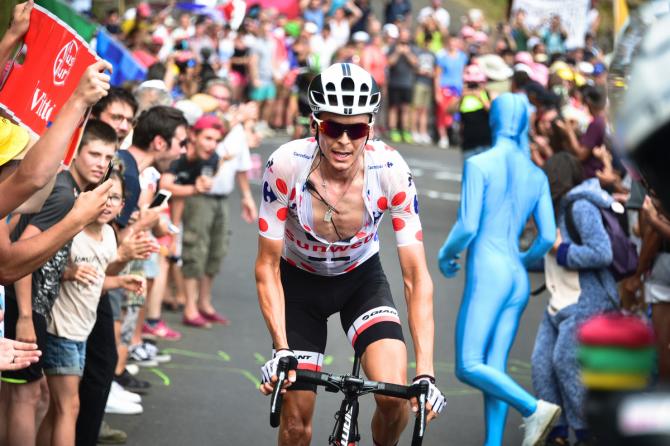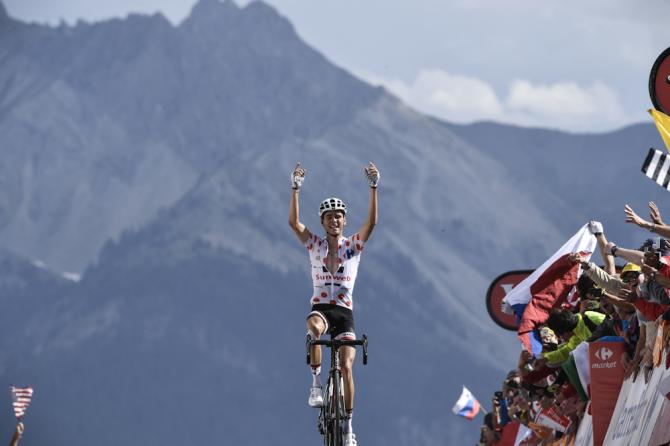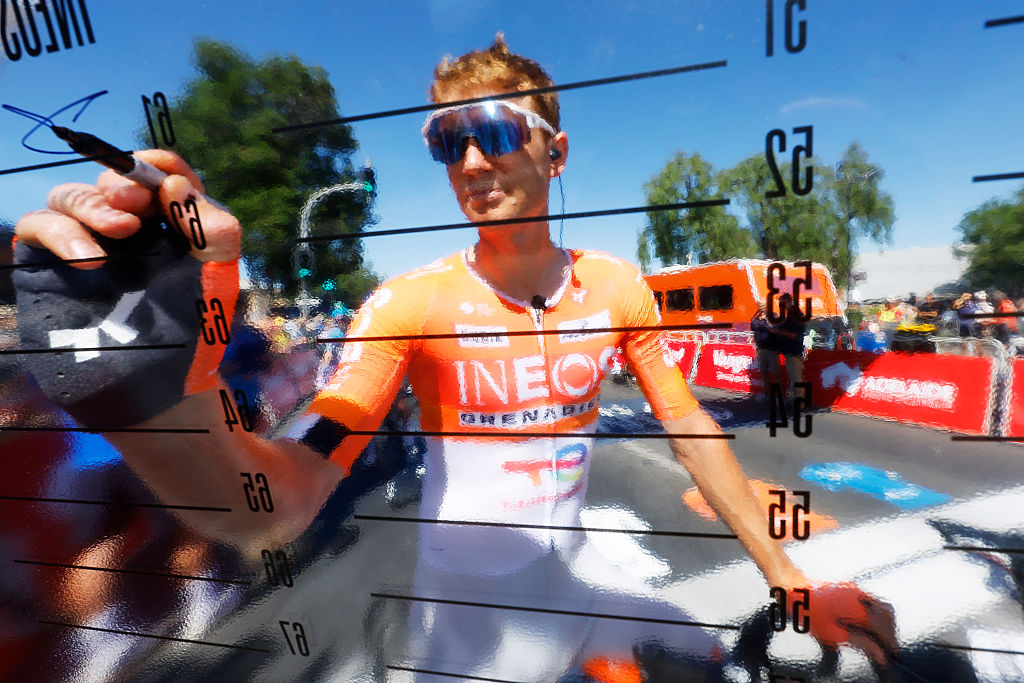Transfer mechanics: Warren Barguil to Team Fortuneo-Oscaro
Spekenbrink on the Breton's departure from Sunweb
The latest race content, interviews, features, reviews and expert buying guides, direct to your inbox!
You are now subscribed
Your newsletter sign-up was successful
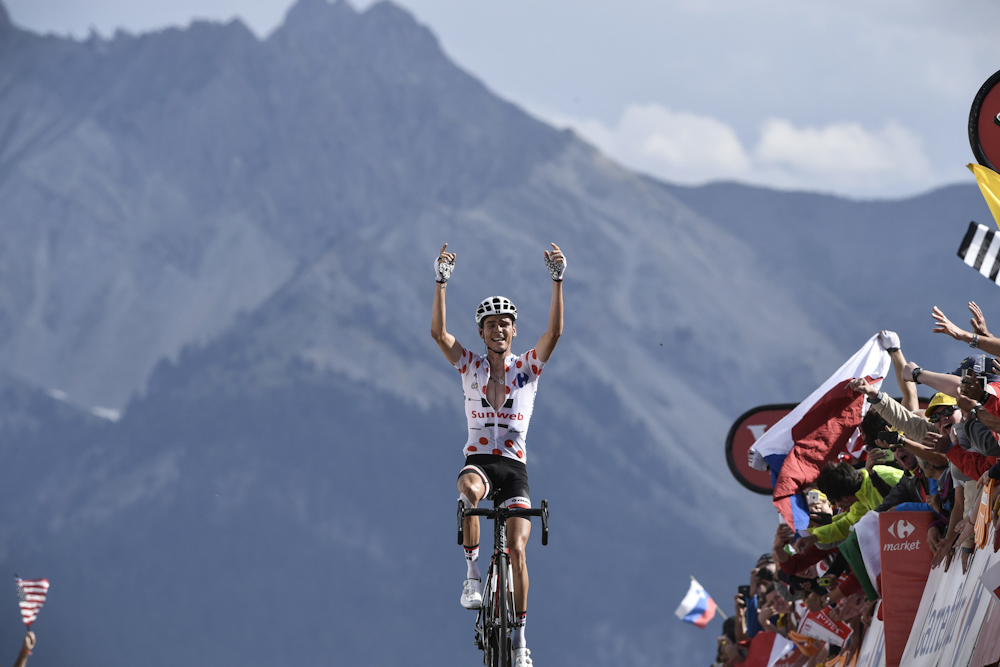
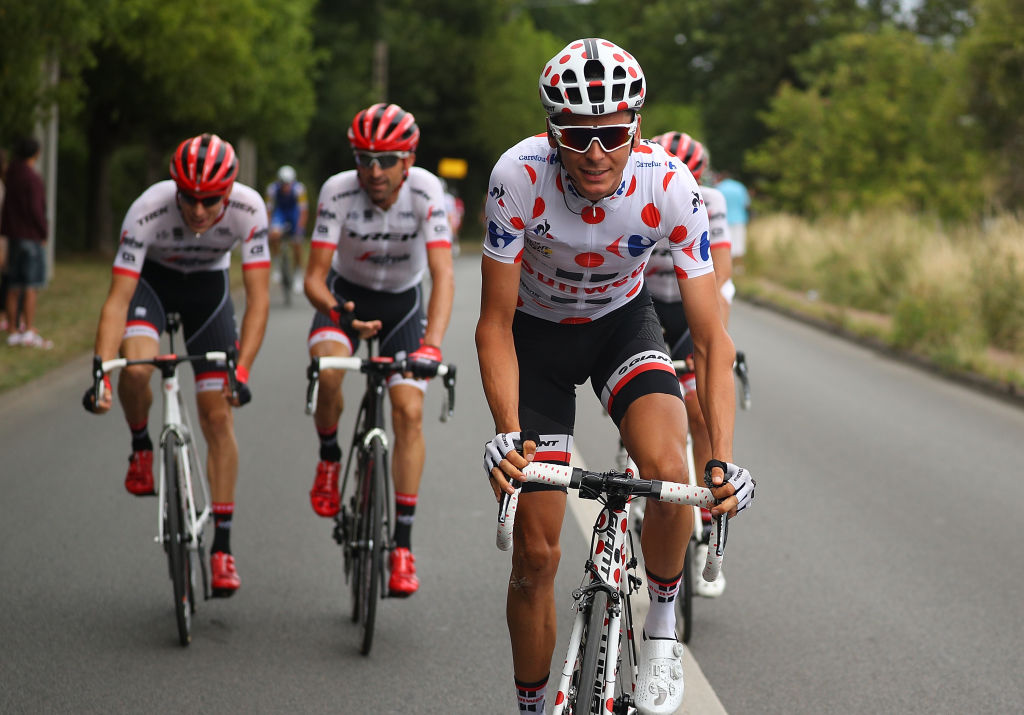
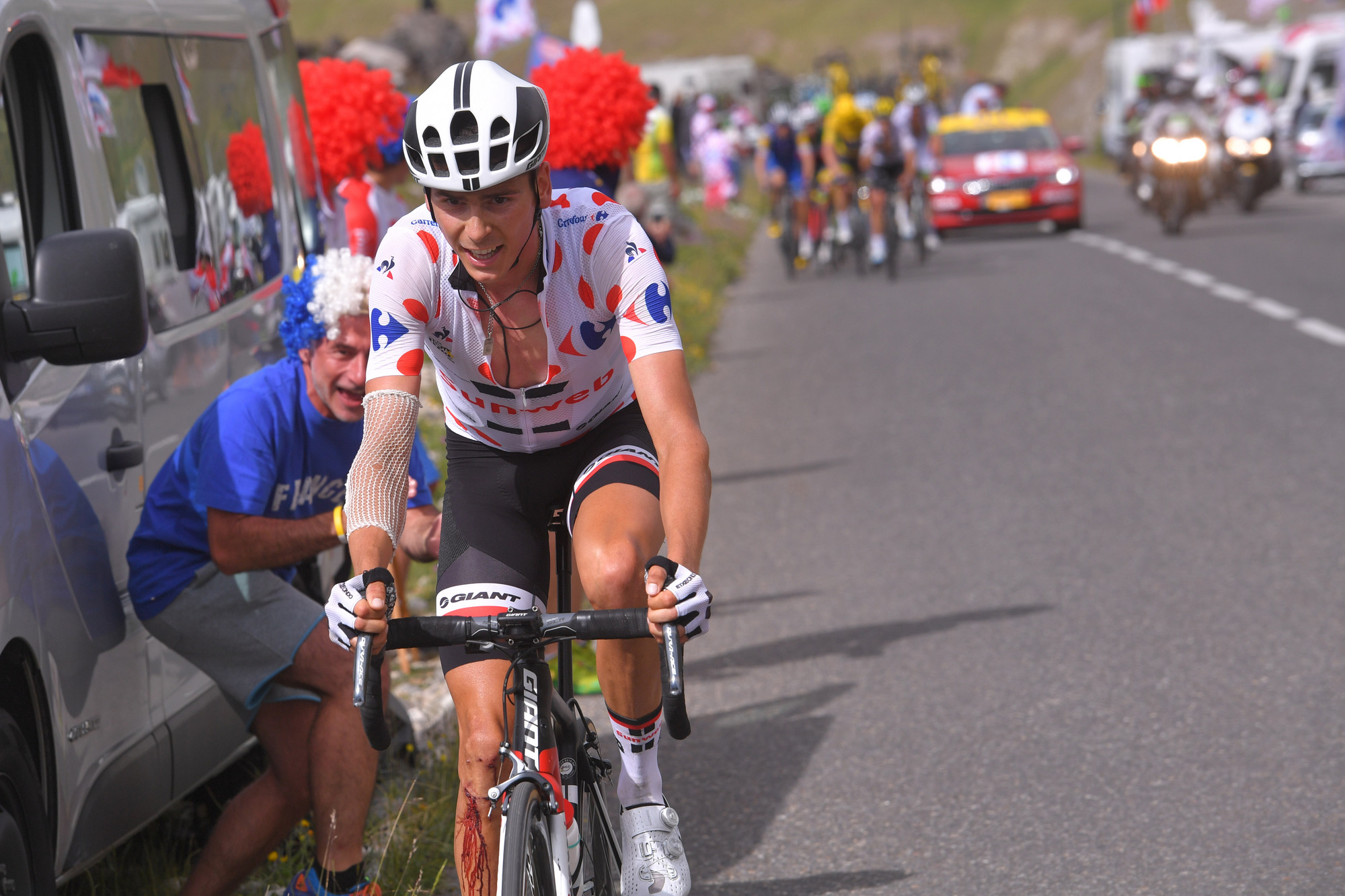
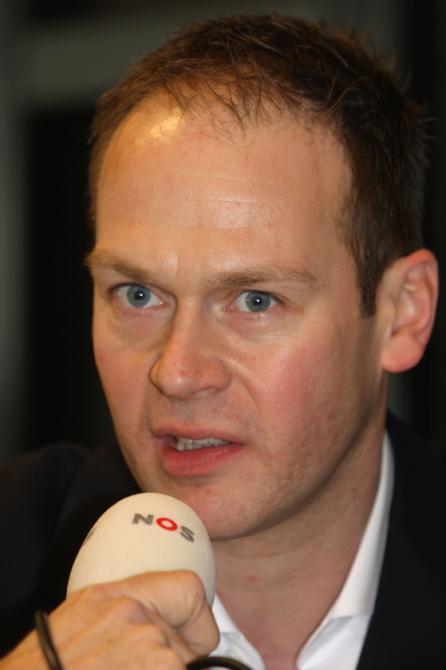
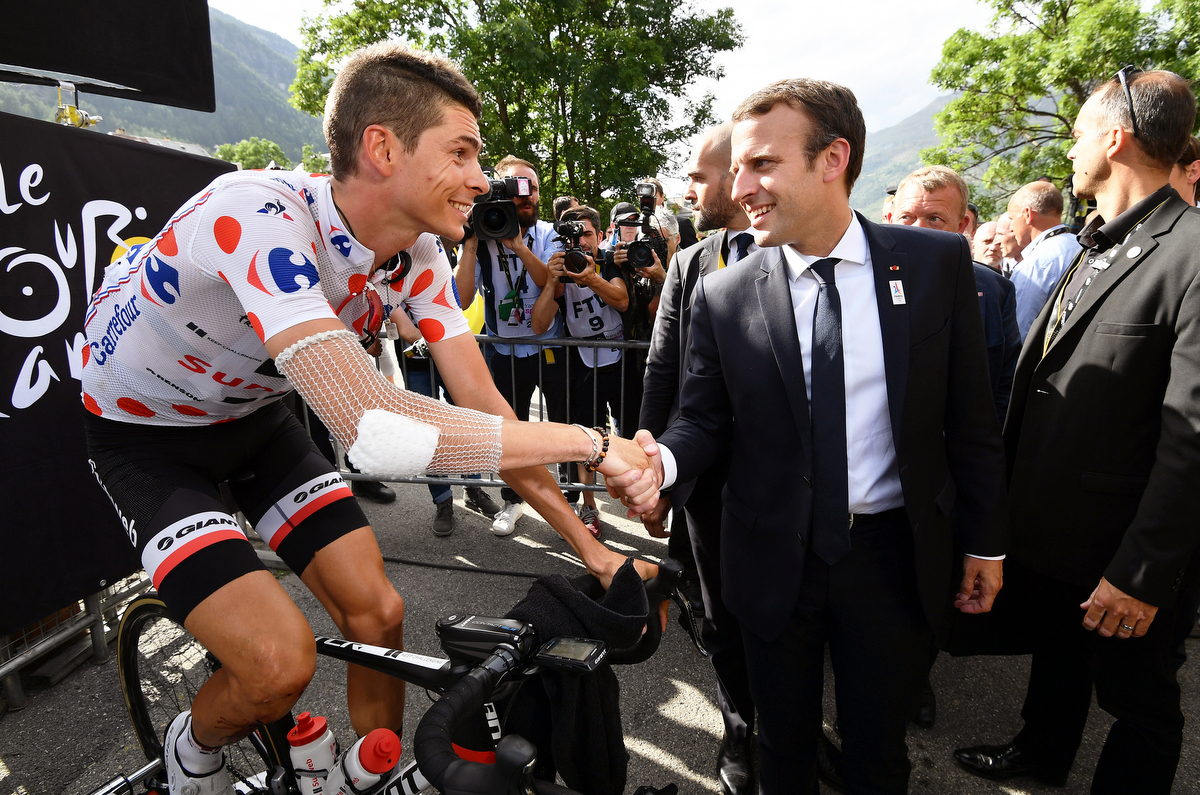
It's a rare scenario when a professional rider tears up his contract and moves to another team, but in early August that's exactly what Warren Barguil did: he essentially annulled his deal with Team Sunweb in order to join Fortuneo-Oscaro on a three-year contract.
What made the situation relatively unusual was the fact that Barguil still had a year left on his deal with the German team, and that after a hugely successful Tour de France his reputation and standing had become vastly enhanced. Yet, Tour success, rider ambition, and team dynamics only accelerated a switch. Cyclingnews takes a look at the mechanics of how Barguil swapped Sunweb's black and white stripes for the Breton Fortuneo-Oscaro squad.
While speculation over Barguil's future first surfaced during the Tour, the reality was that the Frenchman had been on the lookout for a new team since late spring. Even before the Tour de France reached Paris, the move was secured with Sunweb already making plans to reinvest the rider's near €500,000 annual salary in other areas of the squad.
In early June, just a few weeks after Tom Dumoulin had won the Giro d'Italia, Barguil approached the Sunweb management and asked if they would consider letting him leave. The initial request caught the directors off-guard as the Frenchman had one year left on his contract and his season until that point had been consistent rather than spectacular.
"He came forward and asked, as step one, if there was an option to leave the team. He asked if it was okay if he could look around. We told him that we'd think about it and then we got back to him and said he was free to look," Sunweb's CEO, Iwan Spekenbrink, tells Cyclingnews.
"The discussion came down to whether we were willing to let him go. Once we agreed he could look around, then we decided we wouldn't influence where he would go."
In order to understand the mechanics of Barguil's switch it's important to be aware of the rider's character and pedigree. As a talented climber, Barguil rose through the ranks and was earmarked as one of France's most promising climbers in the U23 ranks. In 2011, and while a stagiaire with Bretagne-Schuller – but riding in the French national team – he finished 5th overall in the Tour de l'Avenir, winning a stage ahead of Romain Bardet and Esteban Chaves in the process.
The latest race content, interviews, features, reviews and expert buying guides, direct to your inbox!
A season later he would return to the race and claim the overall title before joining up with Sunweb [then riding under the banner of Skil-Shimano – ed.] as a stagiare, and then signing a professional contract with them for 2013.
In his first year as a pro, Barguil claimed two stages in the Vuelta a Espana before building on that with two top-10 places in Grand Tours. It was obvious that Barguil was a precocious talent but one whose best performances came when he was given a free role and not laboured with the duties of a domestique. He could work for other riders, as he did with Marcel Kittel in those early years at Argos-Shimano, but that was certainly not his forte.
Barguil's desire to lead, and not be tied down by the responsibility of working for others, appears to be at the centre of his request to move. Dumoulin's growing stature effectively meant that Barguil's Tour opportunities would be severely limited in future campaigns.
To the outside world, Sunweb's decision to release Barguil looked a surprising one. While they had Dumoulin primed for the 2018 Tour de France it's fair to say that Wilco Kelderman – their next best GC contender – has not performed over three weeks in a number of seasons. The team has a number of up-and-coming stage racers in Sam Oomen and Lennard Kämna, but no established Plan B if Dumoulin goes off track.
"Tom Dumoulin isn't doing three Grand Tours and neither is Warren. They could have worked together in one team. The fact is that it comes down to mathematics," explains Spekenbrink.
"More and more of those riders are coming through, so then either we had to choose to maybe slow down the development of some riders or make space. We decided to make space.
"It's a growing group. We have a really good pool that can do well in Grand Tours either now or very soon. That's only the GC guys, as we've got Michael Matthews, and then young sprinters coming through too. We have more than GC guys, and other goals. It would have become crowded. We couldn't give him the same role that he had in previous years."
That last line is somewhat telling. With Dumoulin's Tour challenge already in the pipeline, not even Barguil's success at this year's Tour would have been enough for him to keep his leadership role for next July. At best he would have likely been used as a super domestique in the mountains, but, again, that is not a role the 25-year-old has ever excelled in or enjoyed. His talent for splitting groups and attacking would be at odds with Dumoulin's strategy of a more fluid tempo in the mountains. The pair's one Tour as something of a real tandem came in 2016, when the Dutchman was hunting stage wins and Barguil was riding for a top 20 finish on GC.
For Spekenbrink, a future of Barguil attacking his former team and Dumoulin in the mountains is somewhat of a moot point.
"That's what sport is," he counters. "We plan to the strengths that we have. Sport isn't about buying all the competitors. Then you get frustration and people aren't working together. You need balance with different roles, and different talents.
"He's very talented and while he made progression so did the team. I don't want to say that we had more and more identical riders but we had more and more that were comparable to him, who were young and coming through. That meant some less chances and for Warren that meant sharing the role of leadership at times, which wasn't optimum."
Why Fortuneo?
With the team's blessing Barguil and his agent – his uncle, Sebastien Michot – began to look for a new option. FDJ had shown interest two years previously, while AG2R La Mondiale were an unlikely home given that Romain Bardet already has a successor for the future in Pierre Latour. Cofidis had extended their faith in Nacer Bouhanni but Fortuneo were seen as a perfect fit, both in terms of their goals and their Breton heritage.
With a move to the French Pro Continental team, Barguil can focus exclusively on the Tour de France. Questions have been raised over the fact that the rider has dropped down a division and that the team are not as strong as Sunweb but both points can be easily countered. Firstly, with a drop in division Barguil will be able to free himself of the WorldTour shackles and pick and choose his calendar with a greater degree of freedom. There are plenty of French-based stage races that Barguil and his new team can concentrate on either side of the Tour. Secondly, Fortuneo are not the pushovers some would have you believe. In Maxime Bouet, Anthony Delaplace, Brice Feillu, Amael Monard, Pierre-Luc Perichon, and Florian Vachon they have a strong core of riders. All that was missing, one could argue, was a focal point for them to work around. Having a strong core, one that Barguil can identify with, is crucial for the Frenchman.
On the eve of the Vuelta a Espana, he told Cyclingnews the following: "I've been part of a great group since I turned pro but that group has started to fall to pieces last year. I was close to John Degenkolb and Koen de Kort but they're gone, Tobias Ludvigsson also. Now Ramon Sinkeldam and Georg Preidler are leaving and I was very close to them too. It's a core that's leaving, so I felt it was time for me to leave as well. At the start of the Tour, it was clear for me, I wanted to leave. I've told Iwan [Spekenbrink]. He understood my choice."
One question remains: have Sunweb let go of a talent before it has truly peaked? The team's ethos has always been on signing young rider and helping them develop into the best they can be. Have they let Barguil go too soon?
"That's a logical question but we want to develop riders but our way of working is really demanding. We ask for full commitment in their development," Spekenbrink says.
"We're not an easy ride and if people become stars, like Tom, and are happy to keep developing then we're happy to keep them. We want to invest in them and having their best years in our team but now we were in a situation where a few guys were coming through and you need to make a plan. It meant some changes of plans for Warren. It meant there would be change and we had to be honest. We demand a lot of cooperation and if the roles changes, and you see that people might struggle with it, then you can lose, so what you want is people that are motivated for the same plan. If that's not the case then you need to find a solution."
Daniel Benson was the Editor in Chief at Cyclingnews.com between 2008 and 2022. Based in the UK, he joined the Cyclingnews team in 2008 as the site's first UK-based Managing Editor. In that time, he reported on over a dozen editions of the Tour de France, several World Championships, the Tour Down Under, Spring Classics, and the London 2012 Olympic Games. With the help of the excellent editorial team, he ran the coverage on Cyclingnews and has interviewed leading figures in the sport including UCI Presidents and Tour de France winners.
